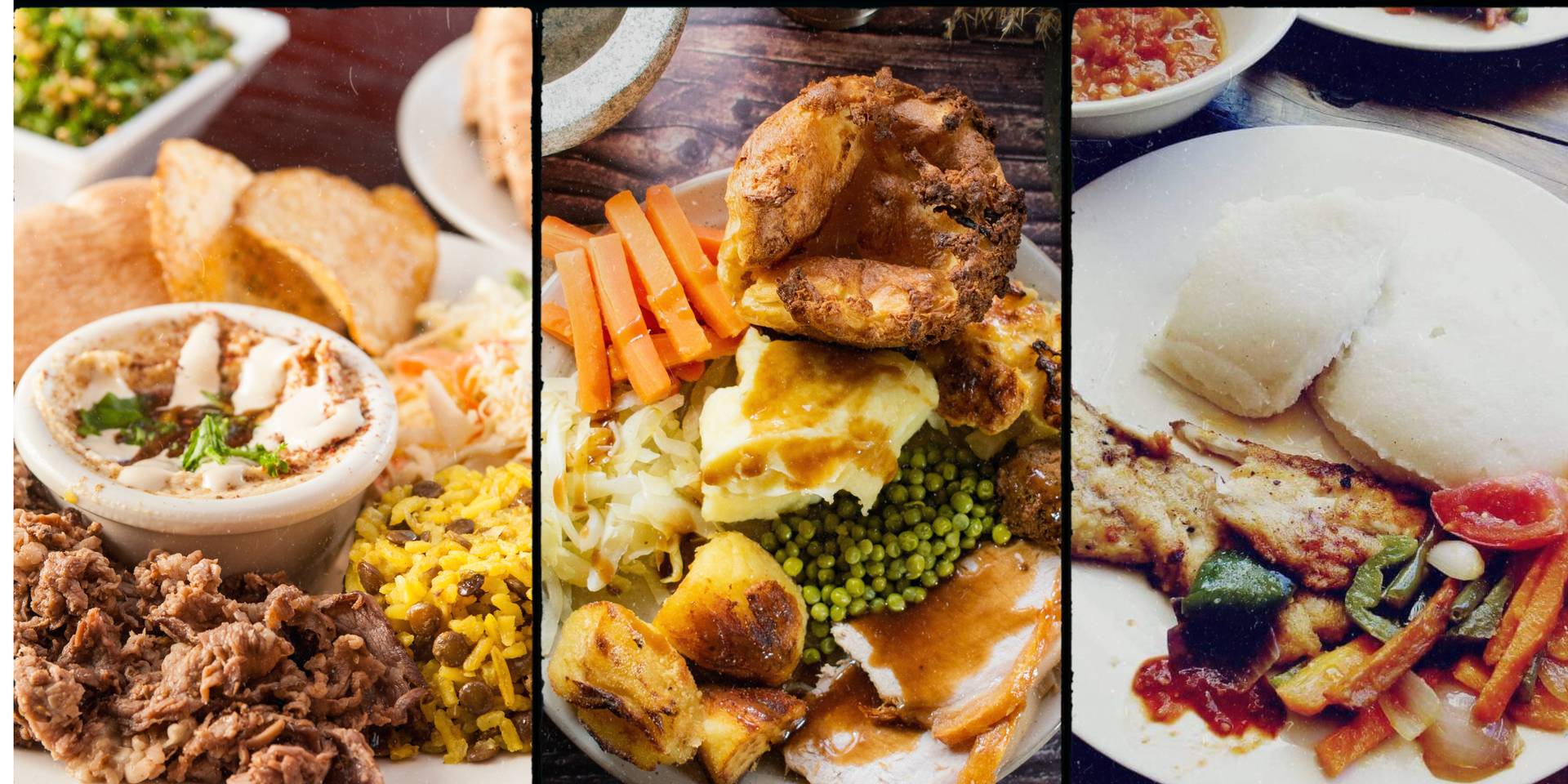Cultural Influences on Eating Habits: A Comparison Between the UAE, UK, and Malawi
Exploring the Impact of Tradition and Modernization on Eating Habits in the UAE, UK, and Malawi

Nutrition is a critical aspect of health and well-being, shaped by biological needs and cultural influences. How people eat and the types of foods they consume are deeply rooted in cultural traditions, societal standards, and economic conditions. This article explores how cultural factors shape eating habits in three distinct regions: the United Arab Emirates (UAE), the United Kingdom (UK), and Malawi. By examining these diverse cultural conditions, we understand how local traditions, socio-economic factors, and evolving global trends influence food practices.
United Arab Emirates: Tradition Meets Modernity
In the UAE, a wealthy nation with a blend of traditional and modern influences, eating habits reflect its rich cultural heritage and rapid economic development. Traditional Emirati cuisine includes dishes like chabab bread, hummus, lamb, and kebabs, which are staples in the diet of many UAE residents. These foods often emphasize the use of spices, grilled meats, and flatbreads, reflecting the region’s historical trade routes and agricultural practices.
However, the UAE's rapid economic growth and urbanisation have brought significant changes to eating habits. The introduction of fast-food chains and the rise of the consumer culture have led to an increase in the consumption of processed foods that are high in sugar, fat, and salt. This shift has contributed to a rise in non-communicable diseases (NCDs) such as obesity and diabetes. According to the Dubai Health Authority, approximately 34.5% of the adult population is obese, which highlights the effect of these dietary changes on public health.
Cultural and societal factors also play a role in shaping eating habits. Social gatherings and celebrations often promote lavish meals, which can lead to extra calorie intake. Efforts to address these issues include public health campaigns that promote healthier eating habits and increased physical activity among them. There is also a growing trend towards combining traditional foods with modern nutritional knowledge, aiming to balance culture with health-conscious choices.
United Kingdom: A Melting Pot of Traditions
The UK offers a diverse culinary landscape shaped by its historical context and multicultural society. The Traditional British cuisine, that is known for its hearty and comforting dishes, which include meals such as roast dinners, fish and chips, and meat pies. These dishes reflect the country's historical reliance on locally sourced, hearty foods that were reasonable for the working class.
The cultural diversity brought by immigrants has introduced a wealth of new culinary influences. From South Asian, Middle Eastern, and African cuisines have become essential to the British diet, which has led to a more diversified and rich food culture. Dishes such as curry, kebabs, and tagines are now common in British homes and eateries, showcasing the UK's evolving food landscape.
In recent years, there has been a major shift towards healthier eating. Where public health campaigns and initiatives like the "Eatwell Guide" have emphasized balanced diets rich in fruits, vegetables, and whole grains while reducing sugar and saturated fat intake. The rise of health-conscious eating habits, such as veganism and gluten-free diets, shows a growing awareness of nutrition and wellness. This shift is also noticeable with the increased availability of organic and health centered food options in supermarkets and restaurants.
Despite these positive adjustments, challenges remain. The convenience of fast food and busy lifestyles contribute to the rising obesity rates and related health issues. Addressing these challenges requires continued efforts in public education and food regulation, that promote healthier eating habits among the communities.
Malawi: Resilience Through Tradition and Innovation
In contrast to the affluence and modernization of the UAE and UK, Malawi provides a distinctive insight into how tradition and resourcefulness influence eating habits. Malawi's traditional cuisine revolves around maize, commonly prepared as nsima (a thick porridge) and typically served with vegetables, legumes, or fish. These staple foods reflect the country’s agricultural roots and its deep connection to locally sourced, sustainable crops.
Food insecurity is a significant issue in Malawi, worsened by poverty, climate change, and agricultural dependence on a single crop. High rates of malnutrition are widespread in the country, with chronic undernutrition leading to stunted growth in children and a weakened immune system in adults. The lack of dietary diversity mainly relying on maize and limited access to fruits, vegetables, and protein sources further combines the nutritional challenges faced by the population.
Despite facing challenges related to food insecurity and agricultural dependence, Malawians demonstrate remarkable resilience. Communities uphold traditional farming methods that have been passed down through generations, ensuring that food is produced locally and remains affordable.
Malawi is also making considerable progress in improving nutrition and food diversity. Efforts to diversify crops by promoting the cultivation of legumes, sweet potatoes, and nutrient-rich vegetables are leading to more resilient agricultural systems. The introduction of innovative farming techniques and nutrition education programs is helping farmers increase crop yields and improve access to a variety of foods, even in the face of challenges posed by climate change.
Comparative Insights
The comparison between the UAE, UK, and Malawi reveals how cultural, economic, and environmental factors shape eating habits and nutritional outcomes. In the UAE, the blend of traditional foods with modern dietary practices highlights the impact of economic development and global influences on nutrition. The UK’s multicultural society and increasing health awareness shows how diverse culinary traditions and modern trends can coexist and evolve. In Malawi, traditional diets and resource limitations indicate the challenges faced by a nation with limited access to diverse and nutritious foods.
In all three regions, cultural traditions play a significant role in shaping food practices. By recognising the distinct advantages of each context, we can develop strategies that integrate cultural heritage with contemporary nutritional expertise, contributing to the promotion of healthier eating habits worldwide.







